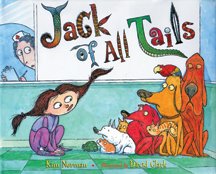
On a children's writers list recently, someone questioned editors' frequently saying they object to inconsistent meter. This person wondered something like, ""Isn't a consistent meter always used in rhyming picture books?"
My response:
... well, not in poorly written ones, which is what editors object to. I think the confusion lies in the meaning of "consistent meter." I believe, when editors cite this as a problem, they're talking about the rhythm being "off" within any given stanza, not with a writer switching to another rhythm altogether. Some authors do that brilliantly.
I'll use a snippet of Robert Frost's "Stopping in the woods on a snowy evening" as an example. Here's how Mr. Frost wrote the first 4 lines:
Whose woods these are I think I know.
His house is in the village though;
He will not see me stopping here
To watch his woods fill up with snow.
Now let's pretend that someone ELSE wrote those lines, only they didn't
quite nail the rhythm...
Whose woods these are I think I know.
His house is in the nearby town though;
He will not see me stopping here
To watch for Santa's reindeer.
Okay. That's more than getting the meter wrong. That's also getting the rhyme wrong, since "here" and "REINdeer" don't even rhyme. (You should rhyme from the last accented syllable. "Ring" and "PLAY-ing" don't rhyme either, even though the last syllable is constructed from the same letters.)
But I think that's what editors object to when they mention inconsistent meter. They don't mind if you change up the rhythms now and then to avoid monotony. My 2nd and 3rd books coming out are both in rhyme. In "The Crocodaddy," I did switch the rhythm for the refrain. It's still the same number of stressed beats per line, but with a greater number of unaccented syllables
between the beats. ("Crocodaddy" has a heck-of-a-lot of unaccented syllables! LOL!)
In the third book, "Wee Piggy," the rhythm is fairly consistent, (a basic 4 stressed beats per line), but--to lend a feeling of accelerating events towards the end--I switched to shorter lines, two stressed beats per line. (That's stressed beats, not syllables. Obviously the lines have more than 2 syllables in each line.)
So I don't think it's CHANGING rhythms that editors object to, as long as the change is deliberate and deft. I think they have more of a problem with clumsily written stanzas with inconsistently metered lines that just don't scan in the first place.
Kim Norman





No comments:
Post a Comment